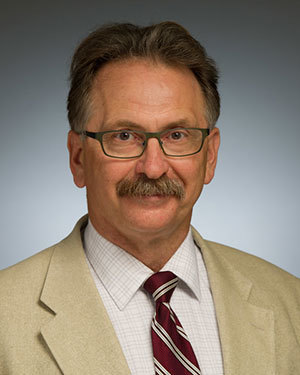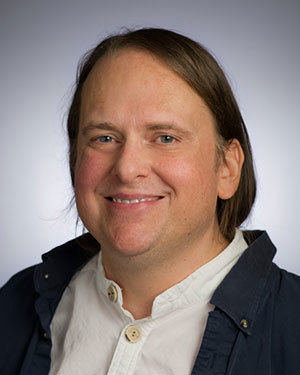Two professors in the University of Notre Dame’s College of Arts and Letters — medievalist Tim Machan and political scientist Benjamin Radcliff — recently received grants from the Fulbright U.S. Scholar Program, which will allow them to travel to Europe to study their respective topics of interest.
“The competition is fierce,” said Kenneth Garcia, associate director of the Institute for Scholarship in the Liberal Arts. “Fulbright awards are very prestigious fellowships and very difficult to get, so having two professors receive Fulbrights in the same year is a real honor for the University.”
 Tim Machan
Tim Machan
While folk tales such as “Beowulf,” timeless poetry like Chaucer’s “Canterbury Tales” or J.R.R. Tolkien’s epic fantasy “The Lord of the Rings” are familiar examples of English literature, most readers are not aware of their surprising connection with Scandinavian cultures, Machan said. Through the Fulbright Program, he will travel to Oslo, Norway, to explore the roots of these English classics during the spring 2014 semester.
“Much of how 19th-century Britain imagines its medieval past is in fact borrowed from Scandinavia,” said Machan, a professor in the Department of English.
“The Norwegians and Danes who actively harried and colonized England during the medieval period left lasting impacts on history, language and cultural practices.”
While in Norway, Machan will access rare and non-circulating archival resources at the University of Oslo’s library, consult with experts in the field and improve his ability to read Norwegian.
Upon his return, he plans to use his research to write a book offering a trans-historical examination of literary contact between Scandinavia and Britain, tentatively titled “A Northern Light: The Scandinavian Invention of the English Middle Ages.”
In addition to his research, Machan will be teaching at the University of Oslo, an experience he says will benefit him both personally and professionally.
“Teaching in Norway about the language and literature of English will offer me the opportunity to reflect on the content of my courses, on my pedagogy and on the language’s changing role in the world today,” he said.
“It will allow me to experience firsthand the reality that English is not the special language of the United States, but a vehicle of global communication.”
Machan has taught English linguistics and medieval literature for more than 25 years and has written a number of works on the history of the English language. His most recent book, titled “What Is English, and Why Should We Care?” was published in 2013.
 Benjamin Radcliff
Benjamin Radcliff
The scientific study of happiness has established itself as one of the most intellectually exciting — to say nothing of publically popular — research programs in the social sciences, said Radcliff, a professor in Notre Dame’s Department of Political Science.
“What is conspicuously lacking from this enormous literature is any real concern with politics,” he said. “Aside from some work in comparative politics, the literature has been entirely silent on what is the most salient, momentous and fiercely debated issue facing the world today: What are the consequences for human well-being of choosing between left and right public policy regimes?”
In March, Radcliff published a book on a similar topic, titled “The Political Economy of Human Happiness: How Voters’ Choices Determine the Quality of Life.”
In his current research, Radcliff is examining market regulation policies and comparing the New Deal policy associated with President Franklin D. Roosevelt, which endorses active economic regulation and social insurance programs, with the position of the Tea Party, which argues that the “spontaneous order” of the market system is harmed by social security programs, regulation and labor unions. He plans to study which of these policies creates happier individuals within society.
“I believe that the argument between left and right is empirical, not purely theoretical or philosophical,” he said. “If what we want to know is which kinds of policies make life better for more people, there is an actual answer. I want to find it — and be able to express it in ways that others will find convincing."
To complete the project, Radcliff will spend the spring 2014 semester at the Roosevelt Study Center (RSC) in the Netherlands. Not only he will have access to the center’s extensive holdings on the New Deal era, which are essential to his project, but he said the locale has meaning for him as well.
“There is simply the intellectual and sentimental association of this project with FDR, and finishing the project at a research center devoted to the study of his legacy appeals to me.”
He also hopes to participate in the educational activities of the RSC, such as its Ph.D. seminars.
Radcliff also noted that the world’s leading expert in happiness research — Ruut Veenhoven — is at nearby Erasmus University in Rotterdam. He believes Veenhoven’s on-site library of unpublished materials will prove valuable.
Looking ahead, Radcliff hoped his research will reach a wide audience, both within the academic community and beyond.
“As a political scientist, I would think that one of the most important questions to ask is what public policies actually make the world a better place, make people enjoy their lives.”
Originally published by Ben Horvath at al.nd.edu on Oct. 14, 2013.